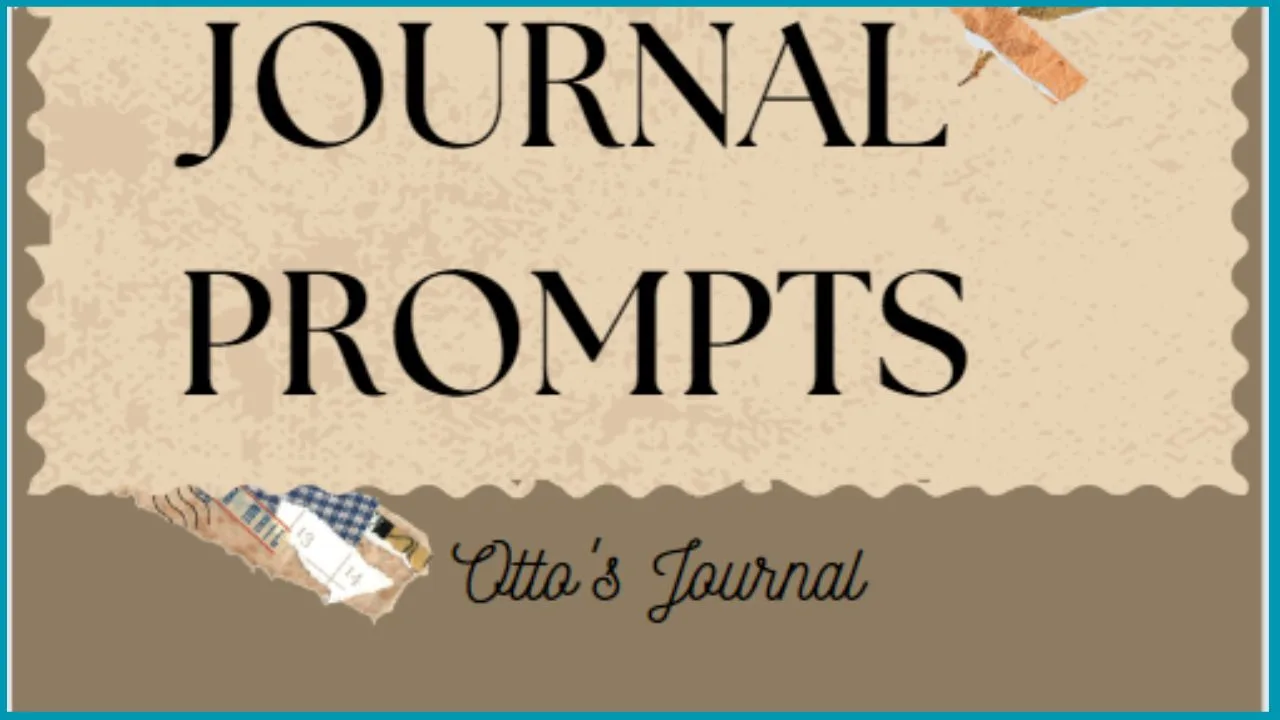Poetry, often hailed as the language of the soul, is a form of artistic expression that thrives on inspiration and imagination. One of the most effective tools in a poet’s toolkit is the poetry prompt, a simple yet profound catalyst for sparking creativity, breaking through writer’s block, and enhancing writing skills. In this article, we’ll delve into the world of poetry prompts, exploring how they can transform your writing journey, amplify your creative prowess, and cultivate a deeper connection with your craft.
How to Use Poetry Prompts to Improve Your Writing
Unleash Your Creative Juices:
Writing prompts, especially those tailored for poetry, provide a springboard for your imagination. They prompt you to view familiar subjects from novel angles, leading to fresh insights and ideas.
Enhance Descriptive Skills:
Creative poetry writing prompts challenge you to describe scenes, emotions, and experiences in vivid detail. By practicing descriptive poetry, you sharpen your ability to convey intricate imagery effectively.
Experiment with Different Styles:
Incorporating prompts into your practice allows you to experiment with various writing styles, such as acrostic poems or poems based on a specific word. This experimentation nurtures versatility in your craft.
Embrace Personal Stories:
Many prompts encourage you to draw from your own life experiences. This personal touch infuses authenticity into your poems, making them relatable and emotionally resonant.
Overcome Writer’s Block:
When inspiration seems elusive, writing prompts act as a lifeline. They provide a starting point and gently guide your thoughts, helping you break through the barriers of writer’s block.
Cultivate Consistency:
Engaging with poetry prompts regularly nurtures discipline. It’s an excellent way to maintain a writing routine, ensuring that your creative skills continue to flourish.
How Can Poetry Prompt Help You Improve Your Writing?
Spark Creativity:
Poetry writing prompts act as a catalyst, stimulating your creativity and encouraging you to think outside the box.
Develop Writing Skills:
Regularly practicing with prompts hones your writing skills. You learn to convey emotions, create imagery, and manipulate language effectively.
Expand Vocabulary:
Exploring diverse prompts exposes you to new words and phrases, enriching your vocabulary and allowing you to communicate more effectively.
Foster Confidence:
Successfully crafting poems from prompts boosts your confidence as a writer. This self-assurance translates into your overall writing journey.
Nurture Observation:
Many prompts are inspired by everyday occurrences. Engaging with them trains you to observe the world keenly, finding inspiration in the mundane.
Adaptation and Flexibility:
Poetry prompts teach you to adapt to different themes and styles swiftly, a skill that proves invaluable in the ever-evolving world of writing.
How to Find the Right Poetry Prompts for Your Poem
Theme Alignment:
Look for prompts that resonate with the themes you want to explore in your poem. A well-aligned prompt ensures a cohesive and meaningful result.
Personal Connection:
Choose prompts that connect with your own experiences and emotions. This personal touch infuses authenticity into your poetry.
Challenging Prompts:
Embrace prompts that push you out of your comfort zone. These challenges foster growth and innovation in your writing.
Visual Inspiration:
Some prompts are accompanied by images. These visual cues can spark unique ideas and bring a new dimension to your poem.
Wordplay and Constraints:
Select prompts that involve wordplay or constraints, like using words that start with the same letter. These constraints can lead to unexpected creative breakthroughs.
Serendipity:
Allow for serendipity. Sometimes, a prompt that initially seems unrelated can lead to surprising and beautiful creations.
How Do You Choose the Right Poetry Prompt for You?
Intuition:
Trust your gut feeling when choosing a prompt. If a particular one resonates with you, it’s likely to inspire your best work.
Experimentation:
Don’t shy away from prompts that seem unconventional. Experimentation often leads to unique and memorable poems.
Emotional Impact:
Opt for prompts that evoke strong emotions. These prompts can help you tap into deeper layers of creativity.
Diversity:
Embrace a diverse range of prompts to keep your writing fresh and dynamic. Mix themes, tones, and styles for maximum impact.
Personal Growth:
Choose prompts that align with your personal growth goals as a writer. This could involve exploring new themes, styles, or emotions.
Integrate with Routine:
Integrate prompt-based writing into your routine. Whether it’s daily or weekly, consistency is key to reaping the full benefits.
Tips for Writing Poetry Prompts
- Be Specific: Clear and specific prompts generate more focused and engaging responses.
- Use Evocative Language: Employ words that evoke emotions or images, setting the tone for the creative process.
- Encourage Exploration: Craft prompts that encourage writers to explore different angles, themes, or emotions.
- Variety Matters: Create prompts across various genres, themes, and styles to cater to a wide range of writers.
- Word Limit Challenges: Challenge writers with prompts that require concise expression, fostering impactful writing.
- Play with Constraints: Employ prompts that impose constraints like syllable count or rhyme schemes, encouraging inventive solutions.
How to Revise and Edit Your Poetry Prompts
Reflect and Revise:
After writing from a prompt, take time to reflect and revise. Polish your poem to refine its message and impact.
Experiment:
Don’t be afraid to experiment with different edits and revisions. Each iteration can unveil a new layer of meaning.
Seek Feedback:
Share your prompt-based poems with peers or writing groups. Constructive feedback can help you fine-tune your work.
Cut Unnecessary Details:
Trim excessive details that might dilute the poem’s core message. Every word should contribute to the overall impact.
Enhance Flow:
Ensure that your poem flows smoothly. Rhythmic and melodic aspects are crucial in poetry.
Stay True to Your Voice:
While revising, preserve your unique voice. Don’t let the prompt overshadow your style.
How Can Poetry Prompt Spark Your Creative Imagination?
Association Games:
Use prompts that involve associating unrelated words, sparking unexpected connections.
Opposite Day:
Engage with prompts that encourage you to explore the opposite of a common theme or emotion.
Time Travel:
Choose prompts that transport you to different periods, allowing for historical or futuristic exploration.
Inanimate Voices:
Write from the perspective of inanimate objects, breathing life into the mundane.
Nature’s Whispers:
Craft prompts inspired by nature, tapping into its beauty, serenity, and ever-changing moods.
Sensory Immersion:
Select prompts that evoke sensory experiences, drawing readers into a world of sights, sounds, and sensations.
Why Should You Embrace Poetry Prompts as a Writer?
- Incorporating poetry prompts into your writing routine offers a multitude of benefits:
- Continuous Growth: Prompts encourage consistent practice, leading to steady growth in your craft.
- Enhanced Creativity: Writing from prompts nurtures innovative thinking and a broader creative horizon.
- Overcoming Stagnation: They break through creative blocks, ensuring your writing journey remains dynamic.
- Versatility: Engaging with diverse prompts hones your adaptability and versatility as a writer.
- Personal Exploration: Prompts facilitate introspection, allowing you to explore personal experiences and emotions.
- Community Engagement: Sharing prompt-based work creates a sense of community and mutual inspiration.
Bottom Line
Poetry prompts are the spark that ignites the fire of creativity within every writer’s soul. They serve as stepping stones into uncharted territory, enabling you to explore diverse themes, styles, and emotions.
Through this journey, you hone your skills, overcome obstacles, and cultivate a unique voice. Poetry prompts transcend mere writing exercises; they are gateways to self-discovery, innovation, and profound artistic expression.
Embrace them, and watch your poetic journey flourish in ways you never imagined possible.





